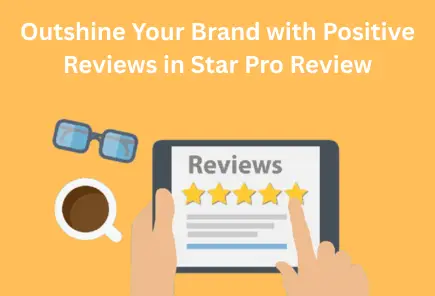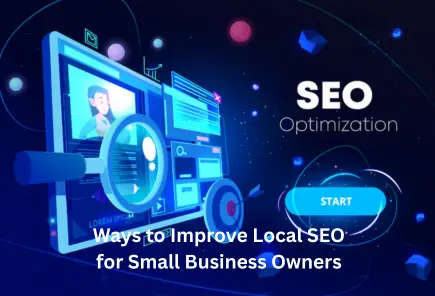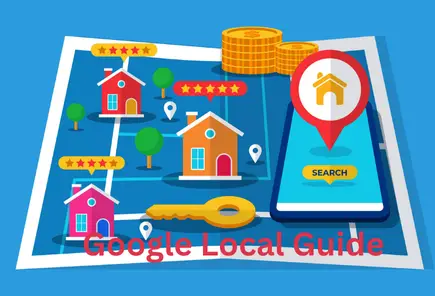

Welcome to our dynamic world of insights and information! Our Blogs section is your gateway to staying informed, discovering industry trends, and gaining valuable knowledge to propel your business forward.}

In today’s online-driven world, businesses live and grow on the foundation of customer trust. One of the most powerful ways to build this trust is through positive reviews. According to research, 95% of consumers aged 18–34 check reviews before engaging with a local business. This shows that online feedback is not just an add-on—it’s central to business growth and brand reputation.Whether you’re a small startup or a large corporation, your reviews are a reflection of your credibility. Customers want proof that others have had a good experience before they invest their money and time. In fact, 31% of people spend nearly half of their time online reading reviews before making purchase decisions. This highlights how essential reviews are in building a strong digital presence and ensuring sales growth.At Star Pro Review, we believe that reviews are the cornerstone of trust, visibility, and growth. This article explains why positive reviews are essential for brand identity, how they affect customer behavior, and the role they play in improving SEO and Google My Business rankings. Why Online Reviews Are Critical for Brand ReputationBefore choosing a business, product, or service, customers turn to online reviews for reassurance. From purchasing electronics to selecting beauty products, reviews are the first point of research. Social Proof: Reviews act as social proof, assuring potential buyers that your brand can be trusted. Customer Confidence: A positive experience shared by others reduces the fear of making a bad purchase. Brand Identity: Reviews contribute to how your brand is perceived in the market, setting you apart from competitors. For businesses, this means that customer voices shape brand reputation more than advertisements ever could. Taking reviews seriously—acknowledging feedback and improving based on customer suggestions—shows commitment to quality and customer care. The Business Impact of Positive ReviewsWhen your business consistently receives positive reviews, the benefits are enormous: Boost in Brand Recognition: Customers can instantly identify your business as trustworthy and reliable. Revenue Growth: Each additional star rating can increase revenue by 5–9%. Customer Loyalty: Positive reviews don’t just attract new buyers—they also help retain existing customers. Higher Spending: Research shows that consumers spend 31% more on businesses with excellent reviews. Real-World Stats That Prove the Power of Reviews Reviews can increase sales by 270% (Spiegal Research Center). 97% of shoppers admit that reviews influence their buying decisions (Fan and Fuel). 88% of customers say online reviews directly affect their purchasing behavior (Zendesk). These numbers make it clear: reviews are not optional—they are critical for growth. How Reviews Influence Customer DecisionsWinning customer trust online is more challenging than ever. However, reviews play a crucial role in helping potential buyers take that final step toward conversion. Trust Building: 85% of consumers trust reviews as much as recommendations from friends and family (Bright Local). Confidence in Local Businesses: 73% of consumers trust a local business after reading positive reviews. Encouragement to Visit: 54% of people visit a local business website after seeing good reviews. Learning from Others: 68% of buyers look at both positive experiences and problems mentioned in reviews before deciding (Fan and Fuel). In other words, reviews don’t just influence customers—they shape buying behavior. Reviews and Search Engine Optimization (SEO)Besides influencing customers directly, reviews also play a huge role in SEO performance. Search engines like Google prioritize businesses that show credibility and customer engagement. According to Moz’s Local Search Ranking Factors Report, reviews account for up to 15% of local pack ranking factors.Here’s why reviews matter for SEO: Keyword Relevance: Customer reviews often contain natural keywords that help your site rank better. Fresh Content: Each review counts as fresh, user-generated content, keeping your business active in Google’s eyes. Trust Signals: A large number of positive reviews signals credibility, improving your chances of ranking higher. At Star Pro Review, we’ve seen how review management directly improves search rankings and helps businesses outshine competitors. This makes reviews a powerful SEO tool that can give you a competitive edge in search visibility. Google My Business (GMB) and the Power of ReviewsOne of the most impactful platforms for reviews is Google My Business (GMB). Reviews here not only influence customer decisions but also directly improve your local SEO ranking.When potential customers search for businesses in their area, GMB reviews act as a guiding light. The more positive reviews you have, the higher your chances of being chosen over competitors.Tips to Maximize GMB Reviews: Verify Your Profile: Make sure your GMB account is complete and verified. Encourage Reviews: Ask happy customers to leave honest feedback. Respond to Reviews: Engage with both positive and negative reviews to show professionalism. Be Consistent: Regular reviews signal ongoing customer engagement, which Google values highly. While platforms like Yelp and TripAdvisor help build brand reputation, Google reviews carry the most weight for SEO impact. Managing Both Positive and Negative ReviewsMany businesses fear negative reviews, but they should be embraced as opportunities to improve. Here’s why: Positive Reviews: Strengthen brand trust, attract new customers, and improve rankings. Negative Reviews: Offer insights into areas of improvement and show transparency when handled well. The key is to respond thoughtfully and promptly. Ignoring reviews—especially negative ones—can harm your reputation, but addressing them demonstrates accountability.At Star Pro Review, we always emphasize that businesses should welcome feedback, good or bad, because it creates transparency and long-term trust. The Future of Reviews in Star Pro ReviewAs customer behavior continues to evolve, reviews will only become more important. With AI, mobile-first searches, and voice assistants growing rapidly, businesses with strong positive reviews will naturally gain more visibility and credibility.Investing in customer experience is the first step, but ensuring that experience is reflected in online reviews is what transforms growth potential into reality. The Bottom LineToday, customers trust online reviews more than traditional advertising or even personal recommendations. In fact, most purchase decisions are made after reading what others have experienced.To outshine your brand with Star Pro Review: Focus on building strong customer relationships. Encourage authentic, positive reviews. Use reviews to boost SEO and Google rankings. Respond actively to both positive and negative feedback. At Star Pro Review, we know that positive reviews are more than just words on a screen—they are the currency of trust. They build credibility, attract new customers, and increase sales while shaping your brand identity for the long run.By leveraging the power of customer feedback, you not only grow your business but also establish a brand that stands out in the marketplace.

Running a small business in today’s digital world is both exciting and challenging. While large brands have big marketing budgets, small business owners often face budget constraints. This is where Local SEO (Search Engine Optimization) becomes one of the most powerful and cost-effective tools. Local SEO not only improves your visibility in local search results but also helps attract customers who are ready to engage with businesses nearby.In this guide, Star Pro Review will walk you through the importance of Local SEO and the most effective strategies you can use to strengthen your online presence, boost local visibility, and compete with bigger brands. What is Local SEO?Most business owners have heard of SEO, but many don’t fully understand what Local SEO means. In simple terms, Local SEO is the process of optimizing your online presence so your business shows up when people in your area search for products or services you provide.It also includes visibility on Google Maps, where most customers check reviews, locations, and ratings before making a purchase decision.👉 Example: If you run a home-cooked food service in Hamilton, and someone searches for “homemade food in Hamilton”, Google will prioritize showing local businesses like “The Harbor Diner”. The business with the best optimization and reviews is likely to appear at the top, earning customer trust and traffic.That’s the real power of Local SEO for small business owners. Why Small Business Owners Need Local SEOFor small businesses, Local SEO is not just important—it’s essential. Here’s why: High ROI (Return on Investment): No other digital marketing strategy delivers ROI like Local SEO. When optimized properly, it drives targeted traffic without wasting resources. Builds Business Authenticity: When your business appears in local searches, customers view it as trustworthy and legitimate. People are more likely to choose businesses that rank higher on Google. Reaches Nearby Customers: Local SEO helps you connect directly with customers in your city or neighborhood, whether you’re offering services in Los Angeles, London, or Chicago. Influences Customer Decisions: 85% of customers trust online reviews as much as personal recommendations. A strong local SEO strategy ensures your business has a positive reputation online. Local SEO Ranking FactorsGoogle uses three major factors to decide local search rankings: Distance: How close your business is to the searcher. Prominence: How popular your business is, including reviews and mentions. Relevance: How well your business matches the user’s search query. Understanding these factors is crucial to building an effective local SEO plan. Strategies to Improve Local SEO for Small BusinessesHere are some of the most impactful strategies small business owners can use to dominate local search results:1. Create and Optimize Your Google My Business ProfileYour Google My Business (GMB) profile is the backbone of local SEO. By claiming and optimizing your listing, your business can appear in Google Maps, local pack results, and even voice searches.Tips: Add accurate business information (name, address, phone number). Upload high-quality images of your store, team, or products. Keep your opening hours updated. Add posts, offers, and events regularly. 2. Collect Reviews from Happy CustomersPositive reviews act as social proof and increase your business visibility. Google also considers reviews a ranking factor for local SEO.Best Practices: Ask for reviews after a successful sale or service. Send follow-up emails encouraging customers to leave feedback. Respond to reviews—thank happy customers and address concerns politely. 3. Optimize Your Website Pages (On-Page SEO)Your website should be optimized for local search terms. Use relevant keywords naturally in your content and metadata.Focus on: Titles & meta descriptions with local keywords. Service/product pages for each offering. Mobile-friendly design for local users searching on the go. 4. Publish Content Around Local News & EventsCustomers love businesses that are connected to their community. Publishing local content builds trust and boosts your relevance.Ideas for Local Content: Blog posts about city news, local events, or festivals. Videos showcasing your involvement in community causes. Local landing pages for each location your business serves. 5. Build Separate Pages for Each Product or ServiceInstead of putting all products or services on one page, create dedicated pages for each offering. This makes your business appear more authoritative and improves search rankings.If you run multiple locations, create location-specific landing pages with local keywords for each branch. 6. Ensure Consistency in NAP (Name, Address, Phone Number)Your business details should remain consistent across your website, Google My Business, and directories. Inconsistent NAP details confuse both customers and search engines. 7. Leverage Local Citations and BacklinksGet your business listed on local directories like Yelp, Yellow Pages, and TripAdvisor. Additionally, build backlinks from local blogs, community sites, and news outlets to improve credibility. Conclusion: Stay Ahead with Local SEOLocal SEO is constantly evolving. Google frequently updates features in search results, which can change how businesses rank. Small business owners must stay updated and adapt quickly.By following the strategies outlined above—optimizing your GMB profile, collecting reviews, publishing local content, and building local citations—you can establish a strong foundation for your business.At Star Pro Review, we believe local SEO is not just about visibility—it’s about building trust, attracting loyal customers, and creating long-term growth for small businesses.Start implementing these steps today and watch your business outshine the competition in local search results.

Running an HVAC business is competitive, and one of the biggest challenges for owners is generating consistent, high-quality leads. The more leads you receive, the more opportunities you have to grow your revenue and expand your brand presence. But how can HVAC business owners ensure a steady stream of qualified leads? In today’s digital world, the answer lies in a combination of online marketing, SEO, and strategic customer engagement.At Star Pro Review, we’ll walk you through 10 proven strategies to generate HVAC leads effectively, ensuring your business not only attracts attention but converts prospects into loyal customers. 1. Optimize Your Website for HVAC LeadsYour website is the foundation of your HVAC lead generation strategy. A well-optimized, mobile-friendly, and responsive site can capture leads even during the off-season. Customers searching for HVAC services usually need help immediately, so your website must be designed to convert visitors into leads quickly.Key tactics include: Clean, user-friendly design: Make navigation simple and appealing to encourage engagement. Contact information upfront: Display your phone number and contact form prominently. Showcase your story: Highlight your brand, team, and values to connect with customers. Engaging CTAs: Use special offers, discounts, or service guarantees to encourage inquiries. A strong website is your first step toward turning online traffic into high-quality HVAC leads. 2. Implement HVAC Marketing for Online ShoppersTraditional marketing methods like newspaper ads, TV, or direct mail are becoming less effective. Today, 70% of customers search for services online, making digital marketing essential for HVAC businesses.Investing in online marketing helps you: Increase brand awareness Build credibility and trust Reach potential customers actively searching for HVAC services Platforms like Google, Facebook, and Instagram are excellent channels to reach homeowners in need of heating, cooling, or ventilation services. 3. Master HVAC SEOSEO ensures that your HVAC business appears at the top of search results when potential customers are looking for your services.Effective SEO strategies include: Targeting local keywords like “HVAC repair in [City]” or “air conditioning installation near me” Optimizing meta titles and descriptions Creating location-specific landing pages Building backlinks from reputable local sources By ranking higher on Google, you increase visibility and attract more qualified leads ready to book your services. 4. Manage Online Reviews EffectivelyPositive customer reviews are a major factor in converting leads into paying customers. Google, Facebook, and Yelp reviews not only enhance brand credibility but also improve local search rankings.Tips for review management: Encourage satisfied customers to leave feedback Respond promptly to both positive and negative reviews Share reviews on social media and your website 5. Train HVAC Technicians for 5-Star ReviewsYour techs are the face of your business. Their professionalism directly impacts the likelihood of receiving 5-star reviews, which drive new leads.Strategies include: Incentivizing techs for top reviews Ensuring punctuality and excellent service delivery Following up with customers after service to encourage reviews Satisfied customers who leave positive reviews act as powerful brand advocates for your HVAC business. 6. Use Mobile Apps and AutomationStreamlining your business operations through mobile apps can significantly enhance lead generation. Mobile apps allow you to: Track service requests and job history Monitor staff performance and customer interactions Collect feedback efficiently By automating tasks like appointment scheduling and follow-ups, you can focus more on converting leads into paying customers. 7. Invest in Targeted Email MarketingEmail marketing is cost-effective and keeps your brand top-of-mind with customers. For HVAC businesses, it works best when you: Share educational content about indoor air quality or system maintenance Offer promotions or seasonal discounts Segment your audience for personalized messaging Regular, relevant communication strengthens trust and encourages customers to schedule HVAC services. 8. Understand Your Market AudienceBefore any marketing campaign, knowing your target audience is essential. Analyze demographics like: Age Location Home ownership status Income level Understanding your audience allows you to tailor HVAC marketing campaigns that resonate with potential customers and increase lead conversion. 9. Partner with Lead Generation CompaniesThird-party lead generation platforms like Google Local Services, HomeAdvisor, Angie’s List, and Home Depot can help your HVAC business find qualified prospects.Tips for success: Focus on platforms relevant to your local market Track the quality of leads to avoid wasting resources Integrate lead management tools to convert leads into appointments efficiently These partnerships expand your reach and provide a steady flow of qualified leads. 10. Deliver Exceptional Customer ExperiencesGenerating leads is just the first step. Converting them requires excellent customer service. Ensure your team: Responds promptly to inquiries Arrives on time for appointments Completes work efficiently and professionally Happy customers not only return but also refer friends and leave positive reviews, creating a cycle of ongoing lead generation. Final ThoughtsLead generation is vital for HVAC business growth. Combining website optimization, SEO, online reviews, email marketing, and exceptional service creates a powerful system to attract and convert leads.Remember, customers rely heavily on reviews and online presence when choosing HVAC services. By implementing these strategies, your business will: Increase visibility in local searches Gain more qualified leads Build a strong brand reputation Drive higher revenue consistently FAQQ1: Why is HVAC lead generation important?A1: HVAC lead generation helps businesses attract potential customers, increase revenue, and grow brand visibility in a competitive market.Q2: How do online reviews impact HVAC leads? A2: Positive reviews build trust, improve local search rankings, and encourage new customers to choose your services over competitors.Q3: Can email marketing work for HVAC businesses? A3: Yes! Targeted, informative emails keep your brand top-of-mind, provide value to customers, and encourage repeat business.Q4: What is the best way to improve HVAC SEO? A4: Optimize your website for local keywords, create location-specific pages, get backlinks from trusted sources, and encourage customer reviews.

In today’s highly competitive digital landscape, Google reviews have become one of the most powerful tools for business growth. Positive reviews not only build trust with potential customers but also enhance your online visibility, influence purchasing decisions, and improve your search engine rankings. Whether you run a small local business or a large enterprise, leveraging Google reviews effectively can give you a significant edge over competitors. At Star Pro Review, we’ll guide you through actionable tips and strategies to get Google reviews in 2021 and turn them into a long-term asset for your business. Why Google Reviews Are Important Google reviews are more than just ratings—they are a reflection of your brand’s credibility. They play a crucial role in attracting new customers, improving your local SEO, and building a strong online reputation. Here’s why Google reviews matter: Boosts Business Credibility: A positive review signals to potential customers that your business is trustworthy and reliable. People are more likely to engage with businesses that have good reviews than those without. Enhances Local SEO: Google considers review quantity, quality, and recency as important ranking factors. Businesses with consistent reviews rank higher in local searches and Google Maps, increasing visibility to nearby customers. Influences Purchasing Decisions: Studies show that a majority of customers read online reviews before making purchasing decisions. Reviews act as social proof, helping buyers feel confident about choosing your business. Provides Actionable Feedback: Reviews offer valuable insights into what your business is doing well and where improvements are needed. They allow you to address concerns and enhance your products or services. Simple & Effective Tips to Get Google Reviews Getting Google reviews may seem challenging at first, but with the right strategies, you can make it easier for your customers to share their feedback. 1. Ask Your Customers Directly The simplest way to get reviews is to ask your satisfied customers. Timing is key—request a review shortly after the customer has experienced your product or service. Tips: Politely ask in person after service completion. Send a follow-up email or SMS with a direct link to your Google review page. Make the process quick and easy to encourage participation. 2. Make It Simple for Customers The easier you make the review process, the more likely customers are to leave feedback. Provide clear instructions and direct links to your Google My Business page. Use a shortened URL for Google reviews. Add a call-to-action on your website, email signature, or social media pages. Include step-by-step instructions for less tech-savvy customers. 3. Respond to Reviews Promptly Engaging with your customers shows that you value their feedback. Responding to reviews, both positive and negative, demonstrates professionalism and helps build stronger relationships. Thank customers for positive reviews. Address negative feedback politely and offer solutions. Show transparency and willingness to improve—this encourages more customers to leave reviews. 4. Offer Exceptional Customer Experience Customers are more likely to leave reviews when they have a positive experience. Focus on providing excellent service, being punctual, and exceeding customer expectations. Personalize interactions to make customers feel valued. Resolve issues efficiently and courteously. Encourage happy customers to share their experience online. 5. Incentivize Customers Carefully While Google does not allow businesses to pay for reviews, you can encourage reviews ethically by offering incentives for general feedback (not specifically positive reviews). Hold contests or giveaways for customers who share honest feedback. Offer discounts or loyalty points for completing a review process. Ensure the incentive is for feedback, not specifically for a positive rating. 6. Verify Your Google My Business Listing Before collecting reviews, ensure your Google My Business (GMB) profile is verified. A verified listing allows your business to appear in local search results and Google Maps, making it easier for customers to leave reviews. Steps to verify your listing: Search your business on Google. Open Google My Business on your phone or computer. Sign in with your Google account and claim your business. Enter accurate business details and follow verification instructions. 7. Showcase Reviews on Your Website Displaying reviews on your website not only builds credibility but also encourages more customers to leave feedback. Create a dedicated testimonials page. Feature snippets of Google reviews on your homepage or product pages. Highlight reviews in email campaigns or social media posts. 8. Utilize Social Media to Encourage Reviews Social media platforms are a great tool to engage customers and prompt them to leave Google reviews. Share links to your review page in posts or stories. Encourage satisfied customers to share their experience online. Highlight customer feedback as part of your content strategy. 9. Monitor and Track Reviews Regularly monitoring reviews helps you understand customer sentiment and respond promptly. Tracking review trends allows you to identify areas for improvement and implement changes effectively. Set up alerts for new reviews. Track ratings over time to measure improvement. Analyze customer comments for product or service insights. 10. Stay Consistent Consistency is key. The more regularly you request and receive reviews, the stronger your online presence becomes. Make review requests a standard part of your customer interaction. Follow up with customers after service consistently. Encourage long-term engagement to maintain a steady flow of reviews. Conclusion Google reviews are a critical component of modern business growth. They boost credibility, enhance local SEO, and influence potential customers’ decisions. By implementing these strategies—asking directly, simplifying the process, providing exceptional service, and staying consistent—you can increase the quantity and quality of reviews your business receives. Being responsive and actively engaging with customer feedback ensures that your business continuously improves while strengthening its reputation online. With consistent effort, Google reviews will become a major driver of leads, conversions, and long-term business success. Ah, I see! You want FAQs included in the post like in the previous ones. I can add a detailed FAQ section at the end of this Google Reviews post to make it more complete and useful for readers. Here’s the FAQ section for this post: FAQs Q1: Why are Google reviews important for my business? A1: Google reviews build trust, enhance your local SEO, and influence customer decisions. Positive feedback helps attract new customers and increases your online visibility. Q2: How can I get more Google reviews? A2: Ask satisfied customers directly, provide clear instructions, make it easy to leave reviews, and follow up with reminders. Consistency is key. Q3: Can responding to negative reviews help my business? A3: Yes! Responding professionally shows customers you care, helps resolve issues, and can turn negative experiences into positive ones. Q4: Do Google reviews impact search engine ranking? A4: Absolutely. Google considers review quantity, quality, and recency as ranking factors, which can improve your local search results and map visibility. Q5: Is it okay to offer incentives for reviews? A5: You can ethically encourage reviews through contests or discounts for general feedback. Avoid paying for positive reviews, as it violates Google’s guidelines. Q6: How do I verify my Google My Business listing? A6: Sign in to Google My Business, claim your business, fill in accurate details, and follow the verification steps. A verified listing ensures your business appears in search results and maps.

In today’s digital world, online reviews and local contributions play a critical role in shaping business visibility and customer decisions. One of the most powerful programs that allow users to make a real impact on local information is the Google Local Guide program. If you are curious about what a Google Local Guide is, how to join, and the perks it offers, this guide will provide you with everything you need to know. What Is a Google Local Guide?A Google Local Guide is an active Google user who contributes to Google Maps by sharing reviews, uploading photos, editing business information, and answering questions about local places. Essentially, Local Guides help enhance the online local experience, making it easier for users to find accurate information about businesses and locations.Local Guides are considered power users of Google Maps, providing a reliable source of information for other users. Their contributions not only improve the quality of Google Maps but also help businesses stand out in a crowded digital marketplace. According to statistics, about 57.5% of all online reviews are generated by Local Guides, demonstrating their significance in shaping customer opinions. Can Anyone Become a Google Local Guide?Yes! Becoming a Google Local Guide is straightforward and accessible to anyone who meets the program requirements. Here’s how to get started: Visit the Google Local Guide website and click the “Join” button. Ensure you are signed in with your Google account. Select your city and confirm the following: You are 18 years or older. You have read and agree to the Local Guide program rules. You agree to receive emails from the program. Click the Sign Up button and wait for Google to confirm your entry. Important Notes: The program is only available in regions where Google Maps operates, which currently covers 40 countries and languages. Participation is for individuals only, not businesses, ensuring that contributions are genuine and unbiased. Once you are signed up, you can start contributing by writing reviews, sharing photos, and editing business data. Over time, these contributions earn points that increase your Local Guide level and unlock various perks. Creating and Managing ListsWhen Local Guides reach level 4, they gain the ability to create and manage lists. Lists can include: Favorite places you have visited Locations you plan to visit Publicly shared recommendations To be eligible for publication, each list must: Have a title. Include at least four places. Be shared publicly. Lists are an excellent way for Local Guides to organize recommendations and showcase their knowledge to other users. Google Local Guides PerksOne of the most appealing aspects of being a Local Guide is the rewards and perks. While these may change over time, typical benefits include: Early access to new Google products Free trials for music or video services Additional cloud storage space Partner perks and discounts Digital newspaper subscriptions Branded merchandise such as T-shirts and socks These perks motivate contributors to continue sharing high-quality reviews and helping the Google Maps community grow. How Do Google Local Guide Points Work?Local Guides earn points for every contribution, such as: Writing reviews Uploading photos Answering questions about businesses or locations Editing existing information Guides can start at level 1 and progress to level 10, which requires a maximum of 100,000 points. Points help measure your activity and unlock additional perks and recognition within the program.Important: Google may remove accounts for policy violations, such as: Participating as a business rather than an individual Posting duplicate or spam reviews Sharing offensive content Adding inaccurate or misleading information By following the rules, Guides can maintain their status and continue enjoying the benefits. How Google Local Guides Benefit BusinessesLocal Guides not only help Google improve Maps but can also indirectly support business growth. Their reviews, photos, and contributions increase visibility and enhance local search rankings.1. Increased Online VisibilityWith mobile searches and local queries on the rise, Google Local Guides can significantly improve a business’s online presence. Businesses with high-quality photos and reviews receive: 520% more calls than average 2,717% more direction requests 1,065% more website clicks Profiles with more than 100 images gain even greater visibility, receiving: 960% more search views 3,459% more map reviews 1,038% more direct searches Clearly, contributions from Local Guides directly influence customer engagement and business reach. 2. Encourage Customers to Leave ReviewsGetting customers to write Google reviews may seem challenging, but it is essential for improving a business’s reputation. Businesses can make the process easier by: Asking for reviews politely after service completion Providing direct links to the review page Thanking customers for their time and feedback 3. Turn Negative Feedback Into OpportunitiesNegative reviews are not just setbacks—they are valuable insights. Customers who leave complaints help businesses identify issues and make improvements. By addressing negative feedback promptly, businesses can: Improve their products or services Increase customer satisfaction Prevent future negative reviews Build long-term trust with clients ConclusionBecoming a Google Local Guide is simple, rewarding, and impactful. Whether you are contributing to help others navigate your city or supporting businesses through reviews, your participation adds value to the community.For businesses, engaging with Local Guides and encouraging customer reviews can increase visibility, build credibility, and boost search engine rankings. Both positive and constructive feedback are essential for growth and improvement.By following the steps outlined above, anyone can join the program, earn points, enjoy perks, and play a vital role in enhancing Google Maps for the benefit of millions of users worldwide. FAQsQ1: Who can become a Google Local Guide? A1: Anyone over 18 with a Google account can join, as long as Google Maps is available in their region. Businesses cannot join—only individuals.Q2: What are the main contributions of a Local Guide? A2: Writing reviews, uploading photos, editing business information, answering questions, and creating public lists of places.Q3: Do Local Guides get rewards? A3: Yes! Rewards include early access to Google products, free trials, discounts, additional storage, and occasional merchandise.Q4: How do points and levels work? A4: Guides earn points for every contribution and can reach levels from 1 to 10. Higher levels unlock additional perks and recognition.Q5: How do Local Guides help businesses? A5: Reviews and photos from Local Guides increase online visibility, improve search rankings, and encourage customers to visit or purchase services.Q6: Can negative reviews be beneficial? A6: Yes! Negative feedback helps businesses identify problems, improve services, and gain customer trust by addressing issues effectively.

In today’s digital age, online reviews have become one of the most powerful tools for customers and businesses alike. Whether you are shopping for a new smartphone, dining at a local restaurant, or booking professional services, customer feedback has a direct influence on purchasing decisions. According to recent surveys, 90% of consumers read online reviews before visiting a business, and 88% trust these reviews as much as personal recommendations. This clearly demonstrates that reviews have transformed the way people make decisions in the online marketplace.From mobile phones to dental clinics, almost every sector relies on online feedback to showcase brand reputation and product quality. A single positive or negative review can significantly impact a business’s perception among potential customers. For instance, 94% of consumers reported avoiding businesses after reading negative reviews. Understanding the power of online reviews is crucial for business owners to create a strong digital presence and maintain credibility. In this blog, we’ll explore why online reviews matter, how to recognize fake reviews, and how businesses can leverage them for growth.Can You Trust Online Reviews?The rise of online shopping has led many companies, both small and large, to engage in review manipulation. Some businesses may post fake positive reviews about their products or leave negative reviews for competitors. Despite this, most online reviews remain credible and serve as a reliable source of information for consumers.For example, platforms like FakeSpot analyze product ratings and identify the most dubious reviews to help consumers make informed choices. The takeaway is simple: if something seems suspicious online, it probably deserves closer inspection. However, genuine reviews remain highly valuable. Customers primarily trust online reviews because they provide transparency and reflect real experiences. When a restaurant receives numerous positive reviews, potential diners are more likely to visit. Conversely, negative feedback about poor service or bad food can deter customers.Although not all reviews are entirely accurate, statistics show that 91% of consumers trust online reviews as much as personal recommendations, while 9% remain skeptical and rely only on verified feedback. Around 25% of people check the authenticity of reviews before considering them credible. Interestingly, 50% of consumers can distinguish irrational negative reviews and may still support the business if they perceive the feedback as unfair.This means businesses don’t need to fear every negative review. When handled correctly, feedback—both positive and negative—can enhance credibility, improve customer relationships, and boost overall brand reputation.Why Online Reviews Are Essential for Your BusinessOnline reviews offer more than just consumer feedback—they play a pivotal role in shaping business growth and improving customer engagement. Here’s how reviews can benefit your business: Boost Brand Recognition: Positive reviews enhance brand visibility. When customers visit your website or Google page, they often click the review section first. A strong collection of reviews encourages more engagement and reinforces your credibility. Increase Customer Engagement: Engaging with customers through reviews allows businesses to understand their experiences better. Responding to feedback—especially negative comments—demonstrates professionalism and commitment to improvement. Drive Sales and Conversions: Positive reviews act as social proof, influencing potential buyers to make a purchase. Customers are more likely to buy from businesses with high ratings and detailed feedback, increasing your conversion rates. Enhance Communication with Customers: Reviews provide a direct channel for customers to share their experiences. Businesses can learn what works well, identify areas for improvement, and express gratitude for positive feedback, fostering long-term loyalty. Support Marketing Strategies: Online reviews strengthen marketing campaigns. Businesses can showcase reviews in advertisements, on social media, and across websites to build trust and attract new customers. Online Reviews and Social ProofSocial proof is a psychological phenomenon where people rely on the actions of others to make decisions. Online reviews are a form of social proof, helping customers judge the credibility and quality of products or services. Positive reviews validate purchases, while negative reviews can serve as warnings to avoid substandard offerings.Studies show that reviews are 12 times more trusted than brand advertisements, highlighting their importance in influencing consumer behavior. Businesses that actively collect and showcase reviews gain a competitive edge, as customers are more confident in their purchase decisions when supported by real feedback.How Reviews Impact Online PresenceOnline reviews don’t just affect consumer behavior—they also influence search engine rankings. Search engines like Google prioritize businesses with active, high-quality reviews. Reviews contribute to local SEO, enhance online visibility, and increase organic traffic to your website.For eCommerce businesses, positive reviews provide a strong reputation signal, making it easier for potential buyers to trust and purchase from your online store. The more authentic and consistent your reviews, the greater the impact on search engine performance.Tips to Ensure Authentic ReviewsWhile reviews are essential, businesses must ensure authenticity. Here are some ways to encourage genuine customer feedback: Request Reviews Promptly: Ask customers to leave feedback immediately after a purchase or service completion. Timely requests increase the likelihood of receiving accurate reviews. Respond to All Feedback: Engage with both positive and negative reviews. Thank customers for their input and address concerns promptly to demonstrate reliability. Avoid Manipulation: Do not post fake reviews or incentivize reviews unethically. Authenticity builds trust and long-term credibility. Highlight Verified Reviews: Emphasize reviews from verified purchases to assure potential customers of their legitimacy. The Bottom LineIn 2019, the global eCommerce market reached $3.5 trillion, reflecting intense competition across industries. With countless brands available, customers rely on online reviews to identify trustworthy businesses. While experiencing a product firsthand is ideal, reviews serve as the next best source for assessing quality and reliability.Customers are 63% more likely to trust and buy from businesses with reviews. Positive feedback not only builds brand reputation but also drives sales, enhances online visibility, and fosters customer loyalty. By leveraging reviews effectively, businesses can create a positive digital footprint, strengthen customer trust, and achieve sustainable growth. FAQ: Online Reviews and Trust1. Why are online reviews important for businesses? Online reviews provide social proof, build credibility, influence purchase decisions, and improve customer engagement. They help businesses attract new customers and enhance their online reputation.2. Can I trust all online reviews? Not all reviews are trustworthy. Some may be fake or biased. Look for detailed, verified, and consistent feedback from real customers to make informed decisions.3. How do online reviews impact SEO? Search engines favor businesses with consistent, high-quality reviews. Positive reviews improve local SEO, increase visibility in Google search and maps, and drive more organic traffic.4. How can businesses encourage customers to leave reviews? Businesses can request reviews after a purchase, provide clear instructions, respond to feedback, and highlight verified reviews. Ensuring a positive experience encourages customers to share their opinions.5. What should I do about negative reviews? Respond professionally, address concerns, and offer solutions. Negative reviews provide insights into improvement opportunities and, when handled well, can enhance customer trust.6. Do positive reviews really increase sales? Yes! Positive reviews influence consumer decisions, increase conversions, and build confidence in your brand, resulting in higher sales and repeat business.

https://smm-matrix.bugfinder.app/
Install Progressive Web Application
This site has app functionality. Install it on your device for extensive experience and easy access.